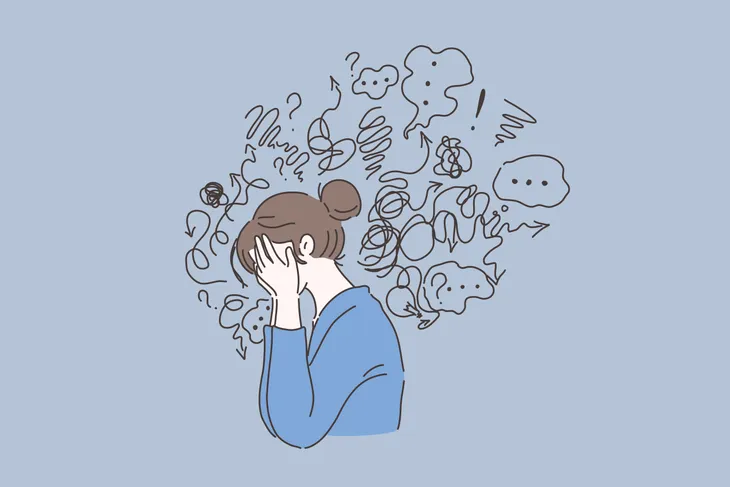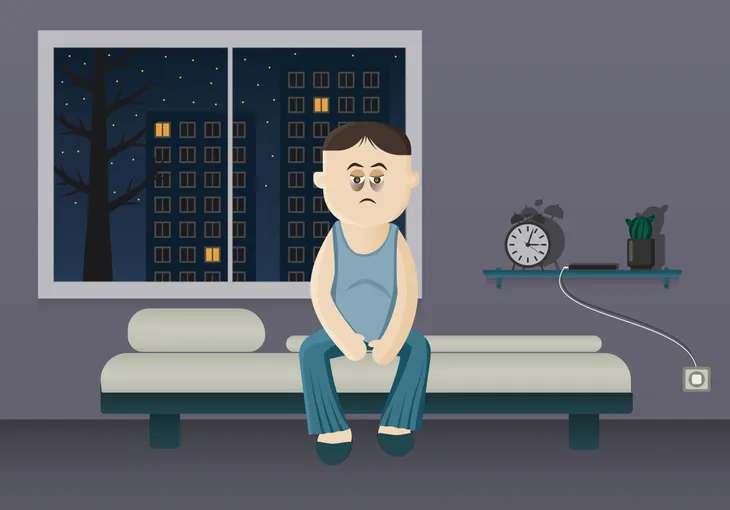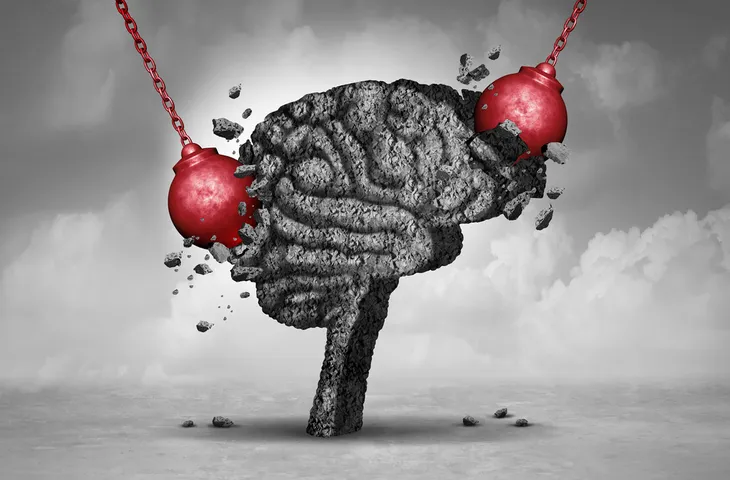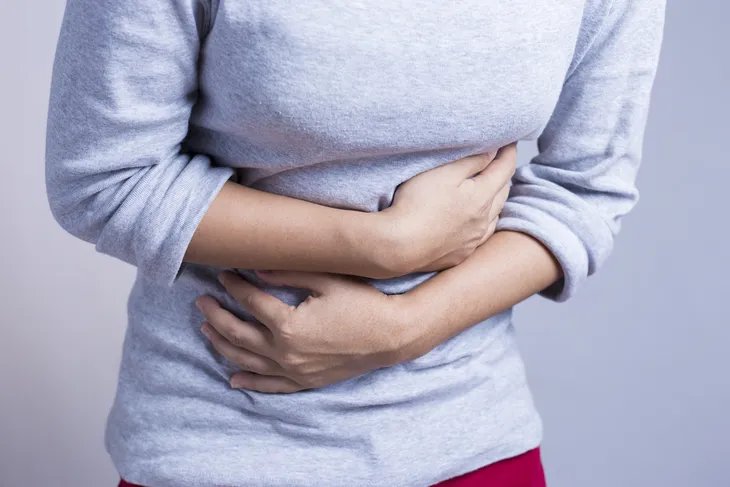Your body’s fight or flight response to stress was designed to quickly mitigate any potential damage imposed by short term (acute) injury or illnesses. This can include physical illness or psychosocial problems such as poverty, job loss, or the death of a loved one.
Your immune system responds by increasing the production of disease fighting white blood cells and releasing cortisol into the bloodstream. Once the threat has been resolved, your immune system returns to its baseline.
When chronic stress occurs, the immune system never returns to baseline but stays at the higher stimulated level. Much like revving a car and keeping your foot on the gas, an overstimulated immune system is not sustainable and will result in problems. Let’s take a closer look at the effects of chronic, prolonged stress on one’s overall health…
Anxiety
People who are exposed to unremitting stress on a continuous basis may develop anxiety or panic attacks. The release of stress hormones results in body systems being placed in high alert mode, ready to fight for your life or flee from danger. Your heart and breathing rate increases as do your energy levels and alertness. In situations of chronic stress your stress response never rests, resulting in exaggerated responses to seemingly minor stressors.
Sometimes all it takes is the mere thought of your situation to bring on anxiety or a full blown panic attack. When anxiety becomes out of control and affects your ability to function on a day to day level, it’s time to seek medical help. The good news is that it is treatable, with both medication and counselling.
Depression
People undergoing chronic life stress may find themselves slipping into a depressed mood more and more often. A situational crisis can result in the development of a serious mood disorder. Anxiety, sleep deprivation and poor coping habits such as drug or alcohol use can contribute to feelings of depression.
Major depressive disorder occurs when depression is unrelenting and lasts for at least two weeks. It often includes symptoms of sleep disturbance, appetite and weight changes, feelings of worthlessness, hopelessness, fatigue, apathy, guilt, difficulty concentrating, difficulty completing activities of daily living or working, and suicidal or homicidal thoughts.
Cardiovascular Disease
Exposure to stressful situations can cause your blood pressure to rise. Chronic stress can keep your blood pressure high, especially if you react with anger, rage or hostility. High blood pressure increases your risk of stroke or cardiac arrest. If you also smoke, overeat, drink excessively or turn to drugs to relieve your stress, you’ll have increased your risk factors for cardiovascular disease even further.
High blood pressure is treatable. If you find yourself under chronic stress, have your doctor monitor your blood pressure and assist you in choosing healthier coping mechanisms.
Sleep Disturbance
People who are exposed to chronically stressful life situations often complain of insomnia. They may be bothered by racing thoughts, replaying the day’s stressors over and over or they may find themselves waking frequently during the night or waking early and not being able to return to sleep.
Increased levels of the stress hormone in the bloodstream also affect your ability to rest. After all, the response to stress is fight or flight, not go to sleep and rest.
Weight Gain or Loss
When people are exposed to ongoing stressful situations they may resort to emotional eating to reduce their anxiety or distress. They usually turn to high fat, high sugar carbohydrate laden “comfort” foods. The initial spike in blood sugar levels gives a momentary energy boost, but is soon followed by feelings of shame or regret as the levels plummet.
Thus a vicious cycle has begun. Conversely, they may become so depressed that they stop eating and lose large amounts of weight. Either excessive weight gain or loss can further negatively impact your health.
Cognitive Impairment
Lack of sleep, poor diet, anxiety and depression resulting from stress can negatively impact your brain. Some people under continuous stress complain of fatigue from lack of sleep, memory problems, impaired decision making, confusion and difficulty learning new information.
This is due to the fact that stress hormones may impede the overall functioning of neurons in the hippocampus in the brain. They may also impair the functioning of the frontal lobes of the brain, which are responsible for higher level executive functions such as reasoning, anger control, attention and judgement.
Gastrointestinal Upset
Stress hormones (cortisol) released in the body’s fight or flight reaction affect the gastrointestinal system in several ways. First, cortisol stimulates gastric-acid secretion which can lead to indigestion and heartburn.
Second, these hormones stimulate the intestines and bowels to quickly empty out. Hence, the possibility of diarrhea. Thirdly, these hormones can cause a person to be more susceptible to inflammatory diseases of the bowel, such as Crohn’s Disease.
Alcohol or Drug Addiction
Some people when confronted with chronic, relentless life stressors turn to drugs or alcohol to help them cope. In the immediate short term these coping strategies may appear to work. The person becomes intoxicated or high and forgets about their problems for a brief time.
Unfortunately, the problems will still be there when the effects of the alcohol or drugs wear off. This can trigger another bout of substance abuse in order to deal with the stressors. Alcohol and substance abuse has many deleterious cognitive, physical and social effects that worsen over time and if left untreated can be fatal.
Fertility Problems
The continuous presence of high levels of stress hormones in your body may negatively impact your reproductive organs. This applies to both men and women.
Women may become susceptible to increased infections and changes in their menstrual periods such as pain, cramping and excessive bleeding. Men may develop erectile dysfunction problems. Both men and women may develop a decrease in their libido and fertility problems.
Increased Physical Illness
People exposed to chronic stress can experience a decrease in the number of cytokines (cells that trigger the production of more infection fighting cells). Researchers attribute this to the chromic presence of hormones released in abundance during stressful situations.
The result is that individuals experiencing chronic stressful life situations are much more susceptible to catching a cold, flu or other infection than the general population.













